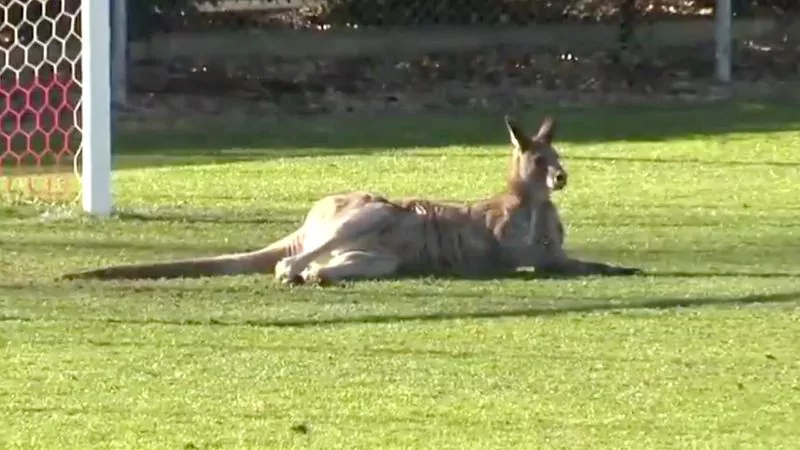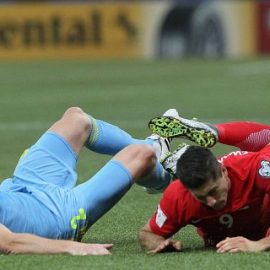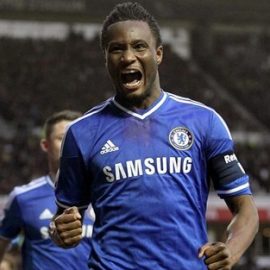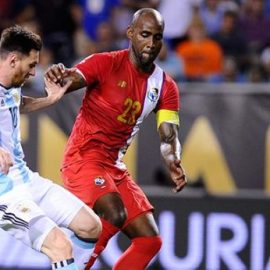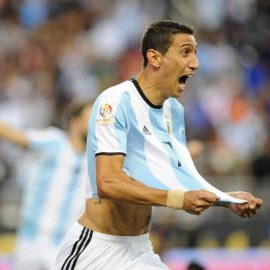With an exciting end to the Premier League campaign, the Champions League last four and the upcoming Euro 2012 championships in Poland and Ukraine this summer, football fans can be forgiven for forgetting about the Olympic Games and football’s involvement at the London event.
Attitudes in football to the Olympics are in stark contrast to how modern sports in general perceive the Olympics. As the video of Louis Smith (below) talking about his preparations for London 2012 shows, this is THE moment for professional sportmen and athletes – to compete and prove yourself at the highest level possible. For many sports the Olympics are a defining showcase moment, and for many sportspeople they are the ultimate test.
Football, however, is different. Club football has changed the dynamic to the extent that international football seems like an unnecessary luxury, reserved only for countries who lack a strong domestic league. You can even argue that the best football club could easily beat the best football team in the world – and since that would mean Spain v Spain + Messi + Alves, apart from the logistics the argument holds.
For track and field athletes the Olympics, held every four years, are of a similar importance as the football World Cup or Champions League (or indeed, Premier League survival). Football however is spoilt with one important game after the next, challenges spread out throughout the season and with more opportunities to succeed. As such, the Olympics has been tagged as just another tournament and from a club football perspective, lacking any benefits in an already- packed football calendar.
There is no doubt that the sheer amount of football played by the professional footballer in the modern day is startling, with their domestic leagues, cup competitions, European football, international friendlies and competitive national fixtures all taking their toll physically and mentally. More than the quantity of football is the intensity – playing at full tilt for 90 minutes 50 times a season will take it’s toll on you (just ask David Silva).
But cribbing about fixture congestion to miss the point of the Olympics entirely. For most other sports the Olympics, held every four years, is the pinnacle and the culmination of countless hours on the training ground and gym. Modern-day players are as professional as the game has ever seen, and therefore should want to play at the highest level possible, strive for victory and be the best that they can be. This attitude will be adopted by other sports represented at the Games, and should be treated as such by football.
The age limit on participants in Olympic football ensures that young players – whose footballing output needs to be managed far better than the case of Arsenal’s Jack Wilshere – get an early chance to appear in a major tournament and hone their skills against competitors of the same age group, if not always the same technical level.
A raft of leading Premier League players such as Jack Rodwell and Gareth Bale have been rumoured to be keen to represent Team GB this summer with clubs fuming over the possibility of losing star players in pre-season. The FA has had to assure Premier League clubs that players who take part in the Euros will not take part in the Olympics, there will undoubtedly be athletes who prioritise Euro 2012 and the upcoming 2012/13 Premier League season over involvement at the Olympics.
Despite this, Pearce has issued the rallying cry for all interested parties to come forward, and the modern day competitor should jump at the chance. Admittedly the Olympics will not carry the same following in football as Euro 2012, but the unique chance to play in the Great Britain team, at the sporting summit of the Olympics, on home soil, is a once-in-a-lifetime opportunity.
The fact that the majority of competitors need to be 23 or under (there are three overage players allowed in each squad), should mean that up-and-coming superstars like Alex Oxlade-Chamberlain, Tom Cleverley, Phil Jones and Daniel Sturridge to name but a few should be clambering over themselves to be involved at the Olympics. With some of the higher-profile and older players not eligible or interested, a young prospect could shoot themselves to super-stardom with strong performances, and join a very small group of players to have an Olympic medal in their trophy cabinet.
The likes of Lionel Messi have competed in the Olympic Games before (against the wishes of his parent club), and won the gold. If you ask Messi, despite is embarrassment of titles he will still remember the Olympic gold and what it means to him. Most of the players likely to head to London 2012 under Stuart Pearce can only dream of getting close to Messi’s trophy count – and if the world’s best footballer wants to win everything on offer, if a football tournament at home presents your country’s best chance of international success in football for ages – then it’s only right that players and management (FA) make it a high priority.
Football fans in England tend to say that the Olympics don’t matter. They do to the people taking part, and especially to the people who give it their best shot, and win.
Add Sportslens to your Google News Feed!
